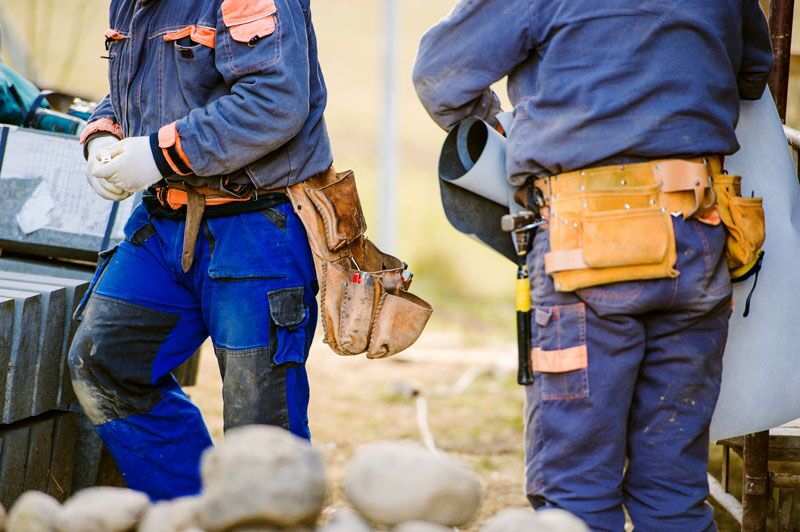Protect yourself when working with home contractors.
As a homeowner, you will eventually need to hire a contractor to address property repairs or renovations. While this might seem like a routine task, it’s important to understand that that working with a contractor exposes you to major risks. Fortunately, there are steps that you can take to minimize your risks. From verifying the legitimacy of the contractor to reviewing your homeowner’s insurance, here’s what you can do to protect yourself when working with a home contractor.
- Select a Qualified Contractor
When hiring a home contractor, it’s vital that you select one that is experienced and qualified. First, you need to make sure that your contractor is officially licensed. This is because licensed contractors have completed the proper training, are legally recognized, and are guaranteed to meet city and federal building codes. You also need to verify that the contractor you select has the proper insurance. This is because hiring an uninsured contractor could leave you responsible for covering any injuries or issues that arise during your home’s construction work. When asked, your contractor should be able to provide certificates of workers compensation and liability insurance.
- Check the Contractor’s Prior Work
Before you select a contractor, you need to check that they have the experience and skill to complete work on your home. Ask prospective contractors if they have worked on similar projects in the past and request client testimonials. You should also use online customer reviews to determine if past customers were happy with the contractor’s work. Sites like Yelp, Angie’s List, and Home Advisor can help you verify a contractor’s reputation and previous projects.
- Pay Wisely
Once you have settled on a contractor, it’s important that you do not pay them before the work is completed. Doing so might result in the contractor abandoning the project before completion or slacking on their work. While every contractor has their own rates, you should not pay more than 50% of the full project cost upfront. For big projects, you should pay a little up front and then in stages as the project advances. For smaller projects, you will likely pay a portion upfront with the remainder at the project’s completion.
- Update Your Homeowners Insurance
Any time you have plans to renovate your home, you need to inform your home insurance provider. This is because your finished project could increase the value of your home, rendering your current coverage limits too low. Updating your coverage limits will ensure that you have all the homeowner’s coverage that you need.
These are some of the steps that you should take to protect yourself when working with home contractors. Do you need help with your homeowner’s insurance? If so, then contact the experts at CIA Insurance and Risk Management. We are ready to assist you with all your home coverage needs today.
Post written by Sam Crudo, Chief Executive Officer
Comments are closed.




